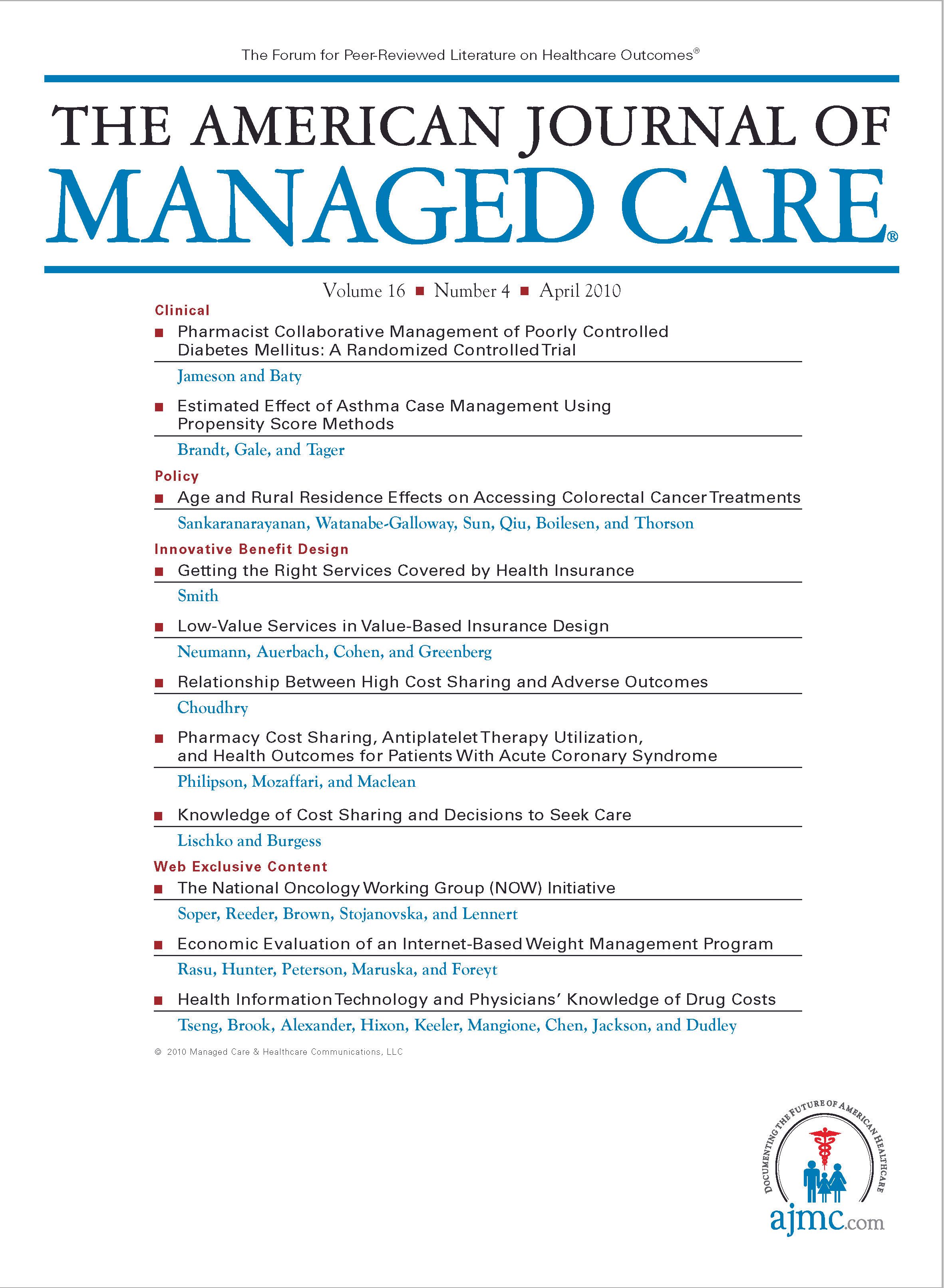- Center on Health Equity & Access
- Clinical
- Health Care Cost
- Health Care Delivery
- Insurance
- Policy
- Technology
- Value-Based Care
Pharmacy Cost Sharing, Antiplatelet Therapy Utilization, and Health Outcomes for Patients With Acute Coronary Syndrome
This article studies the association of pharmacy cost sharing with antiplatelet therapy utilization and health outcomes for patients with acute coronary syndrome.
Objectives: To examine how cost sharing for prescription drugs affects compliance with antiplatelet therapy and subsequent health outcomes among patients with acute coronary syndrome (ACS).
Study Design: Retrospective outcomes study using administrative data from medical and pharmaceutical claims of patients enrolled at health plans offered by 26 large employers drawn from all regions of the country.
Methods: A total of 14,325 patients were diagnosed as having ACS and underwent coronary stent implantation between 2002 and 2005. Each patient was followed up for a maximum of 2 years. Primary outcomes measures were adoption of outpatient antiplatelet therapy, adherence to outpatient therapy, hospital admissions, and healthcare expenditures.
Results: Patients with ACS who face higher coinsurance are less likely to adopt outpatient antiplatelet therapy within the first month after stent implantation and are more likely to discontinue treatment in the first year after stent implantation (P <.01). Higher coinsurance is also associated with an increased number of ACS rehospitalizations (P <.01). For patients in health plans with higher coinsurance rates, expected costs from ACS hospitalizations are $2796 (38%) higher in the first year after stent implantation (P <.01).
Conclusions: Higher copayments for prescription drugs are associated with lower utilization of antiplatelet therapy and with higher likelihood of rehospitalization among patients with ACS. As a consequence, total healthcare spending for patients with ACS increases by approximately $615 in the first year after stent implantation.
(Am J Manag Care. 2010;16(4):290-297)

Specialty and Operator Status Influence Electronic Health Record Use Variation
January 22nd 2026Operators demonstrated specialty-specific differences in electronic health record efficiency, timeliness, and after-hours use, highlighting how workflow and training shape documentation behaviors across medical disciplines.
Read More
Empowering Children and Parents Through Technology: Opportunities, Challenges, and Future Directions
January 15th 2026Digital health platforms improve pediatric care by offering customized, interactive tools for children and parents. They enhance education, support, and engagement while tackling challenges related to access, usability, and privacy.
Read More
Insights Into Patient Portal Engagement Leveraging Observational Electronic Health Data
January 12th 2026This analysis of more than 250,000 adults at least 50 years old with chronic conditions showed lower portal use among older, non–English-speaking, and Black patients, underscoring digital health equity gaps.
Read More
Subjective and Objective Impacts of Ambulatory AI Scribes
January 8th 2026Although the vast majority of physicians using an artificial intelligence (AI) scribe perceived a reduction in documentation time, those with the most actual time savings had higher relative baseline levels of documentation time.
Read More
Telehealth Intervention by Pharmacists Collaboratively Enhances Hypertension Management and Outcomes
January 7th 2026Patient interaction and enhanced support with clinical pharmacists significantly improved pass rates for a measure of controlling blood pressure compared with usual care.
Read More

